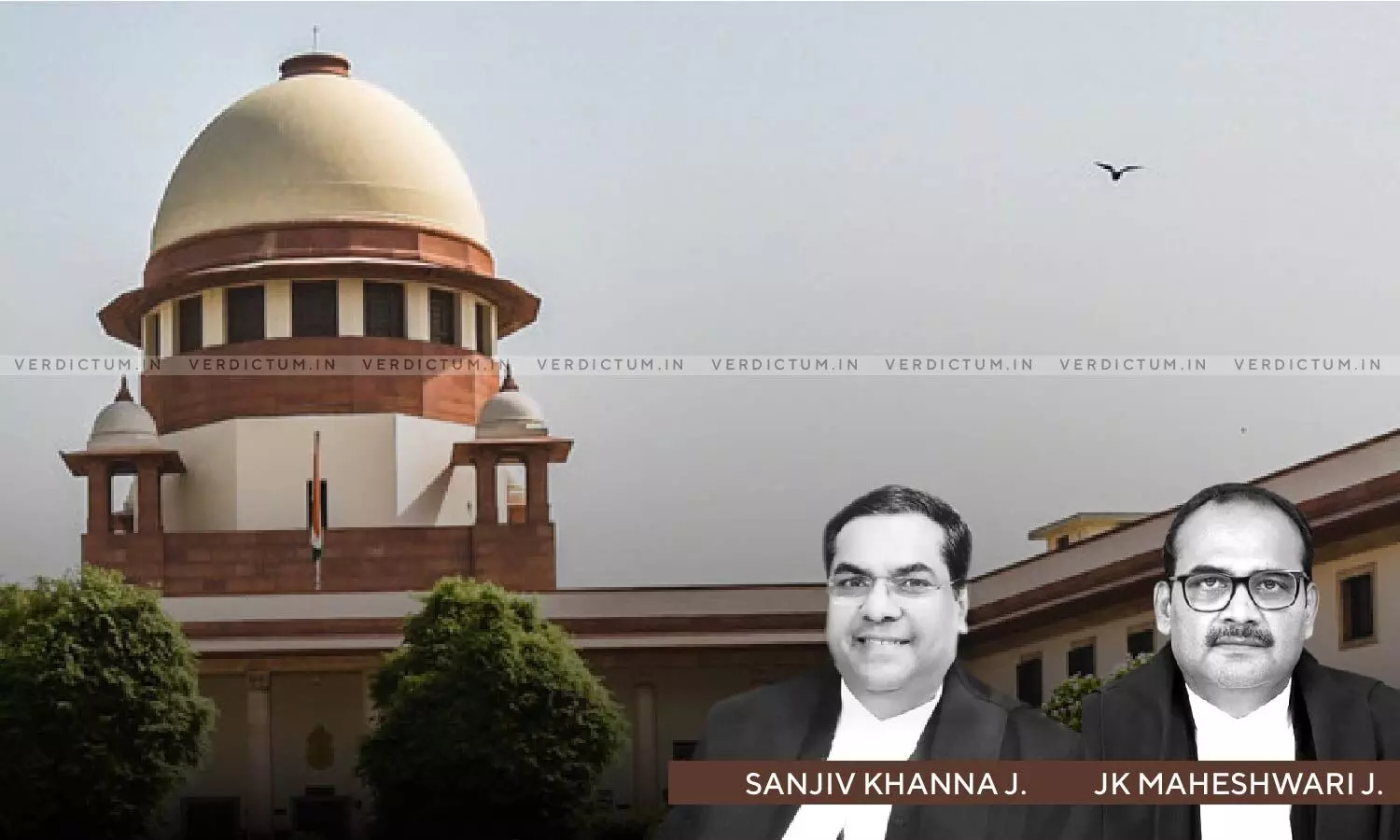
Person In Possession Of Land In Assumed Character As Owner Has A Legal Right Against Entire World Except Rightful Owner: SC
 |
|The Supreme Court has held that a person in possession of the land in the assumed character as the owner, and exercising peaceably the ordinary rights of ownership, has a legal right against the entire world except for the rightful owner.
The Court further added said that a decree of possession cannot be passed in favour of the plaintiff on the ground that the defendants were not able to fully establish their right, title, and interest in the property.
The bench of Justice Sanjiv Khanna and Justice J.K. Maheshwari observed, “… for the plaintiff to succeed, she has to establish that she has a legal title to the Schedule ‘A’ property, and consequently, is entitled to a decree of possession. The defendants cannot be dispossessed unless the plaintiff has established a better title and rights over the Schedule ‘A’ property. A person in possession of land in the assumed character as the owner, and exercising peaceably the ordinary rights of ownership, has a legal right against the entire world except the rightful owner.”
Advocate Rauf Rahim appeared on behalf of the appellant while Advocate Kedar Nath Tripathy appeared for the respondents.
In this case, an attorney on behalf of Maharani Chandratara Devi had filed a suit praying for a declaration that she is the owner of the property known as ‘Khosh Mahal’.
Maharani Chandratara Devi was the sixth wife of the late Maharaja Birendra Kishore Debbarma and was not survived by her children who had predeceased her. She expired soon after the filing of the said suit and therefore the appellant had inherited the Schedule ‘A’ property and other properties in terms of the Will.
However, the appellant also expired during the pendency of the appeal and was now represented by her legal representatives.
The respondents and their agents were restrained from entering the property and creating any sort of disturbance in the peaceful possession.
The following were the aspects for consideration before the Apex Court:
1. The demarcation of land given on lease vide the Deed of Patta and the Ekrarnama based on which the title suit was filed.
2. The burden of proof and whether the plaintiff has succeeded in discharging the burden by establishing her title for a declaratory decree of ownership and her right to possession of the Schedule ‘A’ property.
The Supreme Court noted, “The impugned judgment in our opinion has rightly examined the aspect of demarcation and identification of Schedule ‘A’ property viz. the identity of the land mentioned in the Deed of Patta (Exhibit-12) and the Ekrarnama (Exhibit-5), and upon consideration of the evidence and material on record held that the plaintiff has not been able to establish her title and ownership over the Schedule ‘A’ property. We would refer to the reasoning given by the High Court in this regard and add some reasons of our own.”
The Court further noted that the Trial Court has wrongly held that the Survey Report supports and accepts the case of the plaintiff and that the High Court has rightly held that the Survey Report is against the plea and contention of the plaintiff.
The Court also asserted, “The burden of proof to establish a title in the present case lies upon the plaintiff as this burden lies on the party who asserts the existence of a particular state of things on the basis of which she claims relief. This is mandated in terms of Section 101 of the Evidence Act, which states that burden on proving the fact rests with party who substantially asserts in the affirmative and not on the party which is denying it.”
The Court said that the said rule may not be universal and has exceptions, but in this case, the general principle is applicable.
The Court concluded, “The plaintiff could have succeeded in respect of the Schedule ‘A’ property if she had discharged the burden to prove the title to the Schedule ‘A’ property which squarely falls on her. This would be the true effect of Sections 101 and 102 of the Evidence Act. Therefore, it follows that the plaintiff should have satisfied and discharged the burden under the provisions of the Evidence Act, failing which the suit would be liable to be dismissed.”
Accordingly, the Court dismissed the appeal and upheld the findings of the High Court.
Cause Title- Smriti Debbarma (Dead) Through Legal Representative v. Prabha Ranjan Debbarma & Ors.
Click here to read/download the Judgment